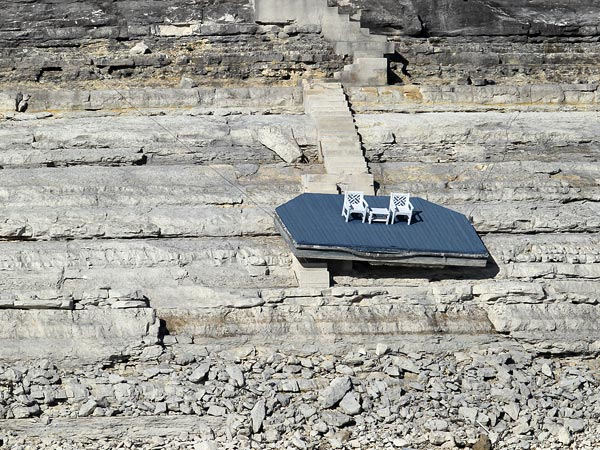U.S. roasts to hottest year on record by landslide – ‘A picture is emerging of a world with more extreme heat’
By SETH BORENSTEIN, AP Science Writer
8 January 2013 WASHINGTON (AP) – America set an off-the-charts heat record in 2012. A brutal combination of a widespread drought and a mostly absent winter pushed the average annual U.S. temperature last year up to 55.32 degrees Fahrenheit, the government announced Tuesday. That’s a full degree warmer than the old record set in 1998. Breaking temperature records by an entire degree is unprecedented, scientists say. Normally, records are broken by a tenth of a degree or so. The National Climatic Data Center’s figures for the entire world won’t come out until next week, but through the first 11 months of 2012, the world was on pace to have its eighth warmest year on record. Scientists say the U.S. heat is part global warming in action and natural weather variations. The drought that struck almost two-thirds of the nation and a La Nina weather event helped push temperatures higher, along with climate change from man-made greenhouse gas emissions, said Katharine Hayhoe, director of the Climate Science Center at Texas Tech University. She said temperature increases are happening faster than scientists predicted. “These records do not occur like this in an unchanging climate,” said Kevin Trenberth, head of climate analysis at the National Center for Atmospheric Research in Boulder, Colo. “And they are costing many billions of dollars.” Last year was 3.2 degrees warmer than the average for the entire 20th century. Last July was the also the hottest month on record. Nineteen states set yearly heat records in 2012. […] The drought was the worst since the 1950s and slightly behind the dust bowl of the 1930s, meteorologists said. During a drought, the ground is so dry that there’s not enough moisture in the soil to evaporate into the atmosphere to cause rainfall. And that means hotter, drier air. The last time the country had a record cold month was December 1983. “A picture is emerging of a world with more extreme heat,” said Andrew Dessler, a Texas A&M University climate scientist. “Not every year will be hot, but when heat waves do occur, the heat will be more extreme. People need to begin to prepare for that future.” [more]
